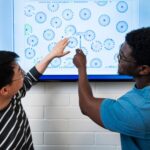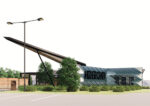UniSA and UOW join forces to build AI capability for Defence
A new collaboration between the University of South Australia (UniSA) and the University of Wollongong (UOW) is set to boost Australian defence industry research, focussing on each university’s strengths in data analytics and artificial intelligence. UniSA and UOW signed a Memorandum of Understanding this week to underpin the collaboration to deliver Australian Department of Defence (DoD) capability and explore wider engagement across other disciplines. The collaboration will enable new advances using AI and data analytics in the area of informed decision making and the development of goal-oriented autonomous systems. UniSA Director, Defence and Space, Matt Opie says combining the expertise of both organisations will improve the quality, depth and scope of the research delivered to Defence. “Together we can use our complementary research strengths to deliver better innovations and solutions for the Department of Defence,” Opie says. “UniSA has key research capabilities in information ecosystems, data analytics and the internet of military things to support a range of defence force requirements from battlefield decision making to military intelligence support systems. “Matched with what UOW can provide, we will be able to deliver a formidable research asset to the DoD and allied industries.” UniSA’s research team lead by Professor Markus Stumptner includes mathematicians, statisticians, engineers and software scientists with expertise in software interoperability, software architecture, Federated Analytics Platform, autonomous systems, and cybersecurity by design. The team also has expertise and research experience in data fusion, optimisations, mining, and trustworthiness and in sensor systems, digital twin/asset life cycle management, overarching Digital Models + Digital Systems, and predictive maintenance. Artificial Intelligence research lead at UOW, and Director of the Decision Systems Laboratory, Professor Aditya Ghose says his group works in a field called Knowledge Representation and Reasoning. “Our work applies knowledge representation and reasoning techniques to problems relating to intelligent agent systems, machine […]






